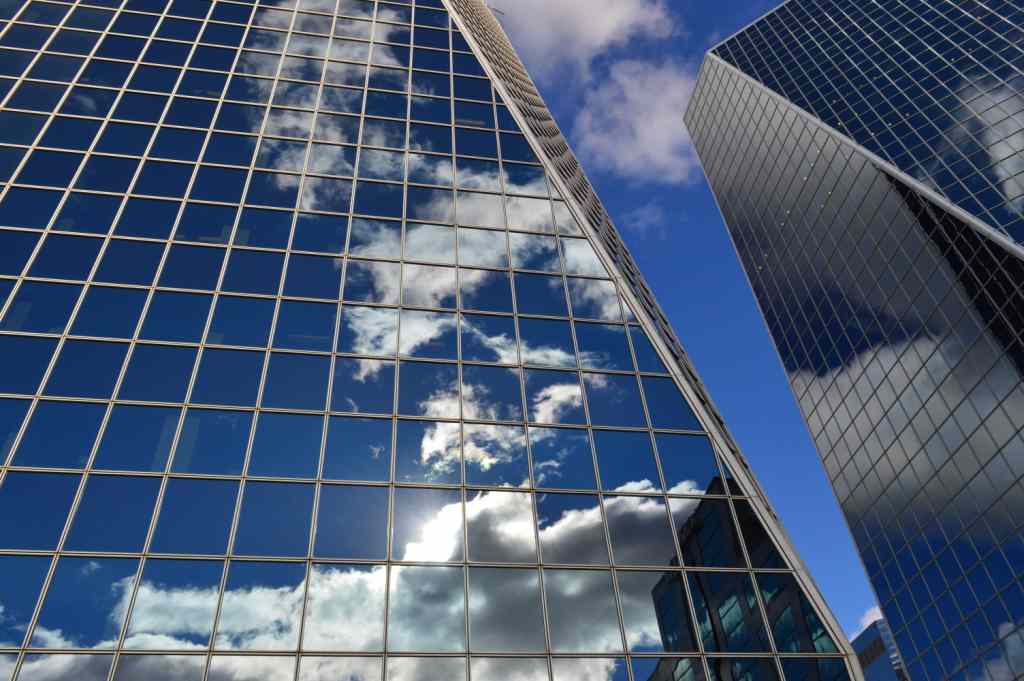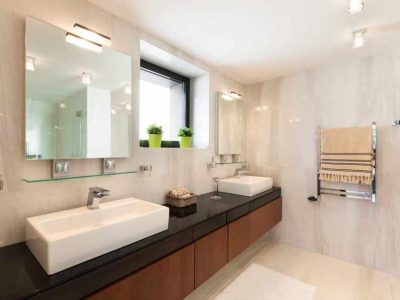Glass is an integral material for almost all construction projects. Architects are using glass extensively in construction to make the structure sustainable. Due to advancement in technology, various processes are now done on glass to make it more flexible. Commercial and corporate buildings nowadays have glass facades to increase their aesthetics.
Sometimes, corporate buildings require privacy to maintain confidentiality of work, which is not possible in case of normal glass, i.e. float glass. For such purposes, reflective glass is used in facades. Reflective glass is a processed glass which reflects more amount of light and provides mirror-like finish. Here we have given brief information on reflective glass, its advantages, disadvantages and applications, which homeowners should know before buying glass for their house.

Reflective glass also called mirror glass imparts a mirror like appearance to the glass. It reflects more amount of natural light, hence preventing visibility from one side and providing privacy. Mirror glass also blocks solar heat coming from outside and thus helps in reducing the cost of air-conditioning.
The float glass panels are washed thoroughly before processing them, to remove dust and dirt on the surface. The panels are then coated with a layer of metal oxide on one surface of the glass. Generally coating is applied of oxides of silver, aluminum, gold, chromium, etc. The intensity of coating can be changed as per the requirement to get optimum reflection as well as light transmission properties. Thus it always does not provide mirror like finish.
Available Size and Thickness:
Reflective glass is available in thickness ranging from 3 mm to 12 mm. The standard size of glass sheets available is 250 mm X 250 mm, and the maximum size is 3210 mm X 2250 mm. Custom made sizes are also available on request.
The advantages and disadvantages of reflective glass are as follows:
Advantages of Reflective Glass:
- As it reflects natural light, reflective glass provides privacy in commercial structures and thus eliminates the unnecessary need and cost of window blinds or shades.
- As only exterior surface is coated, people can see through the other side just like a normal glass during daytime. The glare of light is also reduced and hence it provides a comfortable look from inside.
- Along with light, reflective glass also blocks solar heat up to some extent and thus prevents unnecessary heat built up in the structure. This helps in energy conservation and reducing the cost of air-conditioning.
- Reflective glass provides flexibility in design and increases the architectural view of the structure. Mirror glass is used in glass facades of many high rise buildings to provide astonishing view.
- It can be combined with tinted glass, ceramic printed glass, patterned glass on one side, so as to increase aesthetic appeal of interior also.
- Reflective glass can be easily cut, tempered, laminated, and incorporated in insulating glass unit.
Disadvantages of Reflective Glass:
- The visible light transmission is less than float glass, thus in some buildings, where more light is required, artificial lighting has to be used.
- In winters, it can block the essential solar heat. Hence, there will more need of heating the room, which may lead to increase in electricity bills. Thus reflective glass windows are not an economical option in colder climate.
Application/Uses:
- Mirror glass or mirror is one kind of reflective glass, which has wide application in interior design. It is widely used in bathrooms, dressing rooms, living rooms, etc.


- Reflective glass is most commonly used in glass facades of offices, commercial structures and industrial buildings.
- It is used in glass spandrels, overhead and sloped glazing, entrance doors, store fronts, etc.
- Reflective glass is an ideal choice in application, where view from one side is to be obstructed, such as interrogation rooms in police stations, computer rooms which are to be hidden from public, banks and currency interchange offices, etc.


